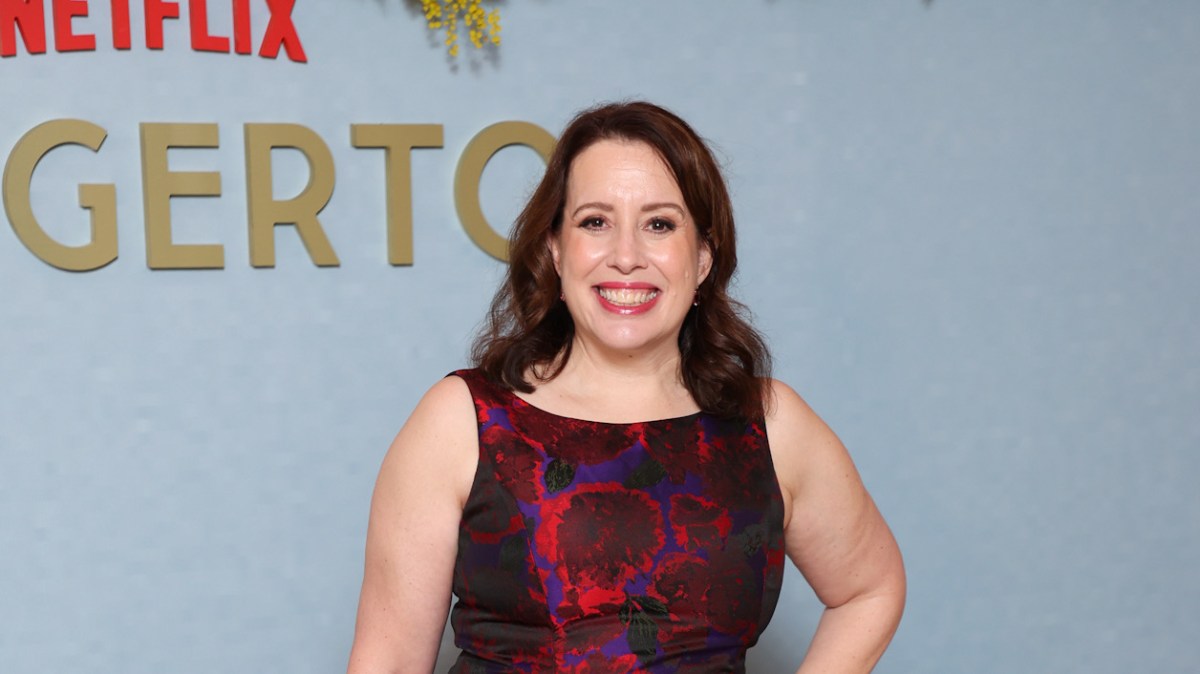When you think of the top all time Netflix show, what comes to mind? Is it Stranger Things? Wednesday? The Queen’s Gambit? One show that definitely belongs in that list is the Shonda Rhimes-produced smash Bridgerton. The source material, by the way, is a series of historical romance novels written by Julia Quinn. How involved was she in the show? Let’s find out.
The first season of Bridgerton debuted in Dec. of 2020. Bridgerton is a fictional take on the sexy and cutthroat world of aristocratic London high society. There are cavernous ballrooms and meticulously-manicured topiary in country estates. The thrust of the show centers around eight Bridgerton brothers and sisters searching for love in a complicated time.
Those siblings are: Hyacinth (Florence Hunt), Anthony (Jonathan Bailey), Benedict (Luke Thompson), Colin (Luke Newton), Daphne (Phoebe Dynevor), Eloise (Claudia Jessie), Francesca (Ruby Stokes, Hannah Dodd) and Gregory (Will Tilston).
Season 1 of the show not only exceeded Netflix expectations, it shattered them. After its debut, Bridgerton became the streamer’s biggest show ever. A breathtaking 82 million global households tuned in to the show. Netflix had optimistically predicted 63 million. That record was eventually overcome by shows like Wednesday and Dahmer: Monster: The Jeffrey Dahmer Story. However, it’s currently the Top 4 show of all time.
Season 2 released on March 25, 2022 and pulled in similar numbers, making the show a bonafide cultural phenomenon. Author Julia Quinn told EW back when the show premiered that the whole process of making it was “very long.”
“Just waiting and keeping my mouth shut was really hard. Because it’s so exciting. You want to tell everybody, but you can’t. But after getting production going, it has just been uniformly positive and fabulous. The scripts have been amazing. As a writer, it’s so fascinating to me to see how they are adapting it.”
In terms of how she participated in the scripts, Quinn said she acts as a consultant of sorts and was sent “mostly very small things like, ‘This person, she called ‘Sir’ this, not ‘Lord’ this,’ very technical details. In terms of the stories and the emotions of the characters, everything has been spot on.”
More recently, and after she had a chance to bask in the shows incredible success, Quinn said the show “was a fairytale story of everything going right.” She said every stage of production was carefully prepared and that producers had obviously read the books and were passionate about these characters. “They were crystal clear about which books and which characters they wanted,” she said. Everything about it was fabulous, beyond my wildest dreams.” Now that we know how Quinn feels about the whole thing, let’s see what producers have to say about working with her.
Producer Shonda Rhimes said she took some “essential liberties” with the show. The rumors that Queen Charlotte was of African descent, she said, “opened a door in my mind through which the show came to be: not fantasy, just an alternate reality, an alternate version of history.”
That made the show “very interesting” and allowed writers to not make race the main thing and focus more on the more salacious aspects of the show, like “pleasure, sex and love.”
Of course, Rhimes and Quinn recently collaborated on the companion novel Queen Charlotte, which gives some insight into the Queen’s relationship with King George III. When it came to Charlotte’s race and gender, Quinn said she was happy to trust the direction Rhimes was going.
“I really was following her lead there. Another thing to remember, too, about Charlotte — and this was Shonda’s idea — is that when Charlotte gets there, she doesn’t even realize that there’s something revolutionary about that. … It’s really just trying to get that sense of finding your place in a society that has not been historically made room for you.”
Producer Betsy Beers was a little more descriptive about Quinn’s involvement, calling her an “amazing collaborator” that’s very “enthusiastic and supportive.”
Quinn, she explained, is a “constant resource” along with “all the historians and experts who have been able to school us in the manners of the time.” That structure is what allows the producer and writers some latitude “to be free.”

